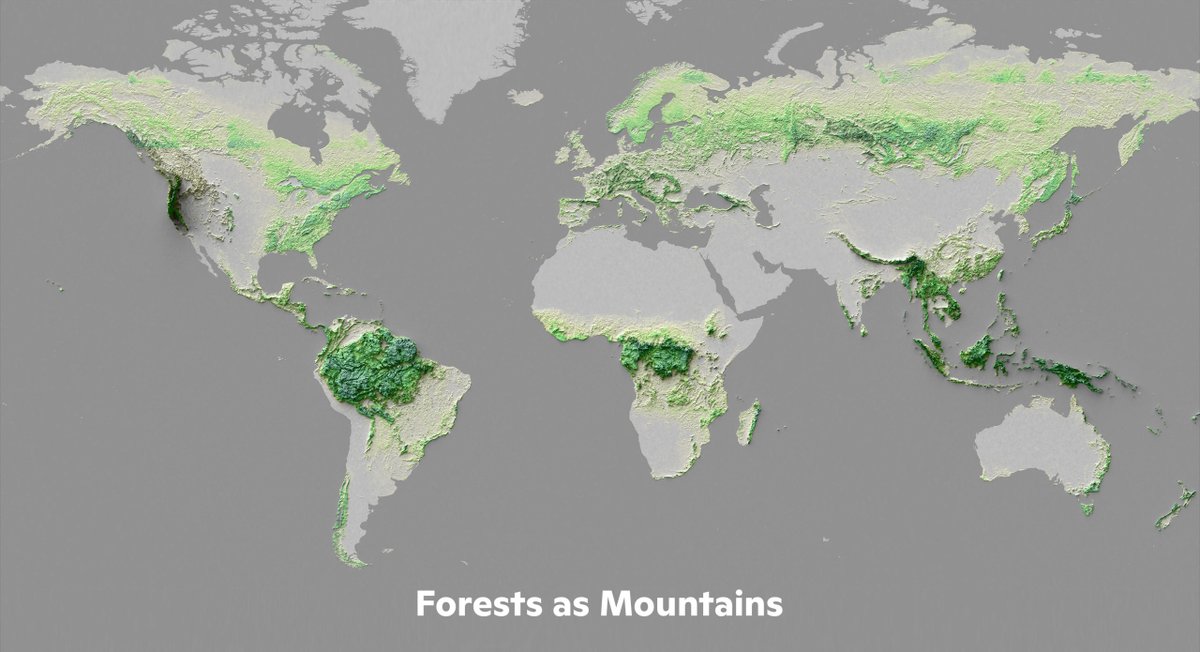#KlimaVor8 Zu den Eckpunkten im einstimmig ratifizierten Parisabkommen gehört Equity. Equity hilft bei Armutsbekämpfung = Klimafluchtminderung. Nach der wissenschaftl. Equity-Rechnung in Tabelle1 hat EU seit 2019 kein THG-Budget mehr für 1.5˚C; 2027 für 2˚:
https://twitter.com/anlomedad/status/1289194735345704962
#KlimaVor8 Tierprodukte beschleunigen Erderhitzung!
EU-Handelsabkommen haben bisher keine Klimaschutz-Klauseln. Das zu Ratifizierende mit Südamerika auch nicht. In Vorbereitung steigender Exporte von Tierfutter und Fleisch "grillt" Brasilien den Regenwald:
EU-Handelsabkommen haben bisher keine Klimaschutz-Klauseln. Das zu Ratifizierende mit Südamerika auch nicht. In Vorbereitung steigender Exporte von Tierfutter und Fleisch "grillt" Brasilien den Regenwald:
#KlimaVor8 Gesunde Böden und Wälder als natürliche "Kohlenstoffsenken" könnten helfen, die Atmosphären-Konzentration von CO2 wieder zu senken. Aber die Erderhitzung bewirkt schon bei 1.2˚, dass Böden und Wälder die Fähigkeit verlieren🔥
Stoppen wir das?!💪
Stoppen wir das?!💪

#KlimaVor8 Die Folgen steigender CO2-Konzentration = Temperatur sind nicht überall gleich. Arme haben zB nach Wetterdesastern größere existenzielle Not. Manche Äquator-Regionen werden ab 1.5˚ in ~2030 zu oft zu heiss für Arbeit draußen. Und nördliche Zonen erhitzen sich schneller 

#KlimaVor8 Wetterdesaster erhöhen das Risiko bewaffneter Konflikte. 30% der analysierten Konflikte von 1980-2016 brachen ~ 7 Tage nach Wetterkatastrophen aus. Konfliktrisiko ist besonders hoch, wo Ethnien bereits unterdrückt werden, Waffen leicht zu haben und Staaten schwach sind 

#KlimaVor8 Die Folgen der Erderhitzung für Gesellschaft und staatliche Systeme hängen von regionaler Kultur und "einschlagenden" Klimawandelfolgen ab. EU wird Klimaflüchtlinge aus N-Afrika und Levante aufnehmen💚Zu was das führen kann lehrt die Geschichte:threadreaderapp.com/thread/1299193…
#KlimaVor8 "Equity" aus dem Parisabkommen lässt armen Staaten, also People of Colour, mehr CO2 vom Restbudget, damit sie damit noch Armut bekämpfen können. Ne Art Klima-Anpassung wie Deichbau: bei Wetterdesastern sind Ärmere in schlimmerer existenzieller Not als Wohlhabendere. 

#KlimaVor8
Ein kleiner Teil der Menschheit treibt die Erderhitzung an UND stoppt sie nicht. Er braucht auch Analyse wie ein physikalischer Klimafaktor: zB sind den seit 30J dominanten Markt-Ideologen mit Freiwilligkeitsnudging statt starkem Staat die PeopleOfColor wenig wert🤑💡


Ein kleiner Teil der Menschheit treibt die Erderhitzung an UND stoppt sie nicht. Er braucht auch Analyse wie ein physikalischer Klimafaktor: zB sind den seit 30J dominanten Markt-Ideologen mit Freiwilligkeitsnudging statt starkem Staat die PeopleOfColor wenig wert🤑💡



#KlimaVor8 Das EU-Klimagasbudget für 1.5C ist schon seit 2019 alle und für 2C in 2027
(nach tandfonline.com/doi/full/10.10…)
Wie hoch ist heute das CO2-Budget für 67% Chance auf 1.5C / 2C einklich global? 220Gt / 785Gt.
Ein linearer Reduktionspfad sähe so aus -aber WER will schon 2C?!



(nach tandfonline.com/doi/full/10.10…)
Wie hoch ist heute das CO2-Budget für 67% Chance auf 1.5C / 2C einklich global? 220Gt / 785Gt.
Ein linearer Reduktionspfad sähe so aus -aber WER will schon 2C?!




• • •
Missing some Tweet in this thread? You can try to
force a refresh






